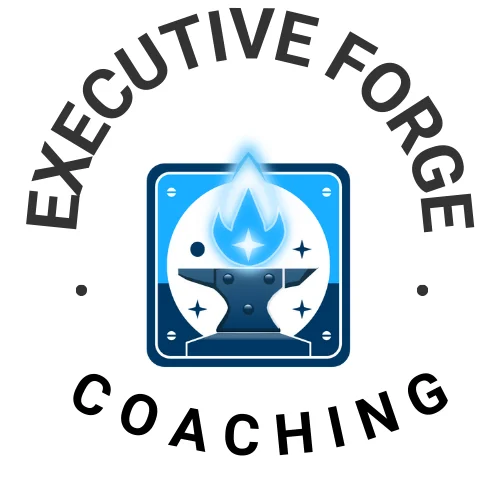At some point in my career, I started to feel that my leadership skills needed a booster. I was managing a rapidly growing team. For the first time, I couldn’t be directly involved in every customer project and internal initiative, which required my attention. I didn’t have time for regular check-ins or career development conversations with everyone on my extended team. My usual practices didn’t scale anymore. I was overwhelmed, frustrated, and felt like I was letting people down.
Does this situation sound familiar? If so, this journey to improve my leadership skills by becoming a better coach might be of interest to you.
Let’s start with the definition of coaching. This concept is not well understood in the corporate world. How many times have you heard the phrase, “I gave him/her some coaching”? When people say it, they usually mean that they told the person what they have done wrong and how they should do things differently in the future.
Coaching is focused on helping the others drive the process of change while being a supportive partner on that journey. While providing feedback and suggestions is super valuable (although, not always appreciated by the other party), this is different from coaching. We coach when we ask powerful questions and let the other person come up with critical insights. We coach when we listen to what a person is saying and, even more importantly, to what they are not saying. We coach when we help them come up with action plans without telling them what to do.
Based on this definition, it’s easy to see why I thought that developing better coaching skills would help me become a more effective leader. I had this realization as a result of completing an internal training course taught by Michael Bungay Stanier, the author of the bestselling book The Coaching Habit. The course was mandatory for all the managers in my company, a policy I would recommend other companies adopt.
At the beginning of the course, Michael clearly articulated three big problems, which coaching can solve in the typical workplace.
- Creating Overdependence – The more you help others, the more they come to you for help. I definitely suffered from this throughout my career.
- Being Overwhelmed – I always have too much to do, which leads to long hours and unhappy remarks from my wife.
- Becoming Disillusioned and Disengaged – When you try to do everything yourself or feel that you need to provide specific directions to others, you end up spending too much time in the weeds instead of focusing on what really matters to you as a leader. As a result, you lose interest and motivation. I’ve been there for sure.
Stanier’s solution sounded deceptively simple: “stay curious just a little bit longer, jump in to offer advice just a little bit later”. How much easier could it be? He even offered 7 great questions, which you can memorize and use in a coaching conversation to achieve the desired result. You start with “what’s on your mind?” and end with “what was the most valuable thing to you in this conversation?”. I just wrote these questions here without even looking at the book as they’ve been engraved in my memory. So, was that it? Have I just built my coaching skills and solved all my problems?
Not so fast. The questions helped. I used them religiously in the conversations with my mentees and with my team members. I organized a peer coaching group with other managers so we could continue honing our skills in a safe environment by coaching each other. It was still very difficult for me to restrain myself from advice-giving (or as Michael puts it to “tame my advice monster”). Yet, I had some success with quick “bite-size” coaching where I helped people overcome tactical challenges.
At the same time, I haven’t seen a lasting change in the behaviors of my mentees (or, more appropriate coachees). Also, we would often have a great conversation, but there would be no follow-up, no lasting change in behaviors. Over time, I started to wonder if I needed to go deeper and learn more about the practice of coaching.
This is when I had made the decision to pursue a professional coaching certification. Over the course of a year, I dedicated myself to studying and practicing various coaching methodologies, immersing myself in the principles of effective coaching. This commitment allowed me to incorporate more advanced techniques into my coaching practice, which not only enhanced my interactions with team members but also significantly contributed to my professional growth.
I discovered that embodying qualities such as curiosity, supportiveness, and empowerment is not just beneficial but essential for leaders in today’s fast-paced corporate world. As a result, I began to see my career soar, with increased recognition from peers and superiors alike. This journey reaffirmed my belief that investing in coaching skills is a powerful way to foster a thriving workplace culture and drive individual and organizational success.
Upon joining a new company, I developed a coaching skills program tailored specifically for my direct reports. This program included interactive workshops and practical exercises designed to introduce them to fundamental coaching concepts and techniques. By engaging in role-playing scenarios and group discussions, my team members were able to practice their coaching skills in a supportive environment. The feedback was overwhelmingly positive, as participants reported feeling more empowered to take ownership of their development and support one another. This initiative not only strengthened our team dynamics but also laid the groundwork for a coaching culture that I believe enhanced our overall performance and drove success in our projects.
While I don’t advocate that every leader needs to become a certified professional coach, I firmly believe that with enough practice, any leader can develop effective coaching skills. Investing in coaching training for leaders can equip them with the tools to empower their teams and foster a culture of continuous learning and collaboration. As organizations navigate the complexities of the modern corporate landscape, leaders who practice coaching techniques will be better positioned to inspire, motivate, and drive their teams toward success.
Let’s embrace the power of coaching as a vital component of effective leadership, knowing that even small improvements in coaching practices can lead to significant positive outcomes.
P.S. I do believe that Michael Bungay Stanier’s book is fantastic. I highly recommend it to any leader, who wants to build highly motivated and engaged teams.


